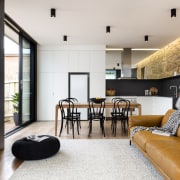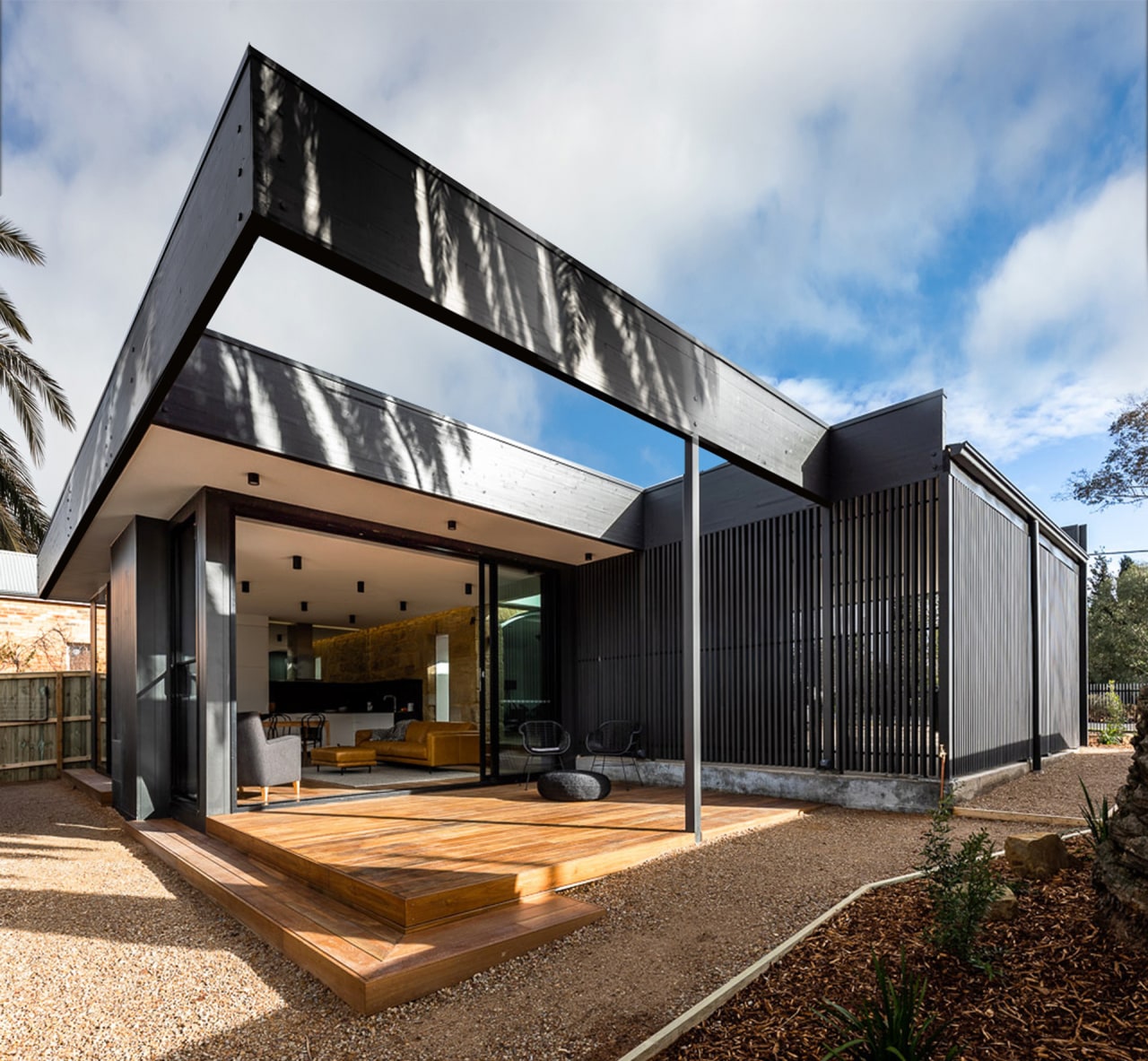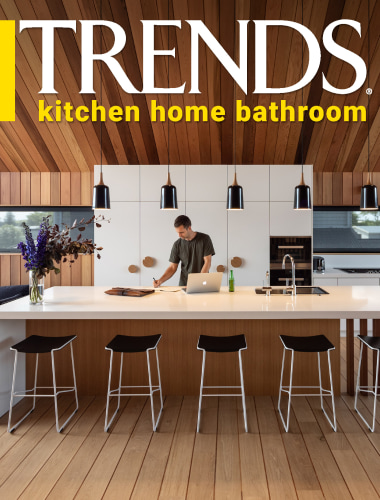Fresh perspective on heritage and adaptive design
An 1850s heritage sandstone coach-house is given a 21st century makeover that highlights its rugged origins

A heritage renovation today really does have its work cut out. High on the must-do list are celebrating the old; maximising the functionality and looks of the new; and lastly ensuring the whole renovation is a homage to sustainability.
This former coach-house built in the 1850s brought the opportunity to explore heritage and adaptive design from a fresh perspective, says architect Melonie Bayl-Smith of Bijl Architecture.
“Carved off from an adjacent over-sized mansion long ago, the Victorian building had been converted to a home in the 1970s and now sat on an unusual square allotment that created an uneasy relationship with the street, she says”
“With this dwelling acquired in a dark, decrepit state, the new owner – a music educator and conductor – briefed us to create a contemporary home for family living that would include a grand piano in a salon-style environment for teaching and playing music.”
At the same time, the home needed to exude charm, compactness and comfort.
“Given the site constraints, instead of adding a modern form solely to the rear of the structure, we wrapped the coach-house volume to create a new focal point and bring balance to the site."
“As a result, the addition – finished in dark timber-look cladding – transitions into the Victorian sandstone volume, with no marked division between heritage and contemporary.”
The ground-floor, loosely L-shaped addition wraps round from the side entry to the rear of the existing home.
The addition comprises a spacious carport and a new dining, living, kitchen zone that in turn opens to the reworked existing interior. The latter is now home to an expanded lounge and a ground-floor bedroom.
Upstairs, a large existing master suite has been replaced by a smaller master suite, another bedroom and a bathroom. There’s also a new skylight by the stair bringing natural light into the heart of the interior. The reworked first floor rooms stay within the original upstairs footprint.
“Aesthetically – and inspired by the work of minimalist artist Donald Judd – the new scheme creates a bold yet recessive form that allows the sandstone of the existing building to still be the hero,” says Bayl-Smith.
“This way, the original features and access points of the existing coach-house – the loft window, together with the carriage and barn door openings – are retained and renewed. "
These large-scale openings allow for generous internal views from new to existing areas and vice versa, including looking through to the new kitchen-living-dining environment.
Hidden lighting washes down the restored walls to accentuate their texture. Plus, the stone walls’ rustic finish is complemented by a muted charcoal palette on the new sections of the build.
This choice creates a strong, unified aesthetic across both the interiors and exteriors.
“We feathered the vertical slats on both the front and back of the carport, to soften the form visually and admit natural light. The carport shields the outdoor living deck directly behind it and functions as a multi-purpose space – a covered play area, a place to tinker, a rehearsal space, even an overflow area for entertaining.”
The renovation also addresses sustainability in key ways. Firstly, the significant retention, repair and reuse of embodied materials includes not only maintaining the heritage value of the original sandstone walls, but also the reuse of the existing first floor structure, and gable roofs, along with the construction and internal linings installed in the 1970s addition.
Secondly, slab on-ground construction is used for the new floors, assisting in the creation of thermal mass.
While the home can be closed up for the cold winters, full-height sliding doors and louvred windows establish natural cross ventilation, lighting and contribute to thermal massing throughout the year as needed.
Plus, all the existing windows are now double glazed, matching the new windows and skylight.
“Overall, simple, robust materials were used inside and outside to ensure the residence is extremely low maintenance,” says Bayl-Smith. “The home’s landscaping is also designed with complete ease of upkeep in mind.”
Credit list
Architecture and interior design
Kitchen designer
Landscape design
Roof
Main floor
Wallcoverings
Heating
Furniture
Benchtops
Kitchen sink
Oven, cooktop, ventilation, refrigeration, dishwasher
Awards
Builder
Kitchen manufacturer
Cladding
Tiles
Paint
Lighting
Kitchen cabinetry
Splashback
Taps
Blinds
Story by: Charles Moxham
Photography by: Adam Gibson
Home kitchen bathroom commercial design
Home Trends Vol. 36/2
The selection of materials is a key element in the design of a new kitchen. Not only will they dictate the aesthetics of...
Read More















